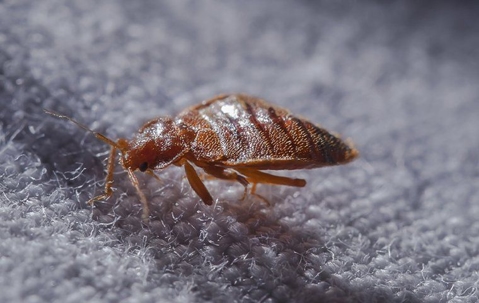Bed Bug Exterminator Houston Near Me: Practical and Reliable Insect Control
Bed Bug Exterminator Houston Near Me: Practical and Reliable Insect Control
Blog Article
Reliable Parasite Control Measures to Shield Your Garden and Plants
In the realm of horticulture, the harmony of a well-tended garden can usually be interrupted by unwanted insects that endanger the health and vitality of plants. Applying efficient parasite control determines not just safeguards the yard's aesthetic appeal but likewise plays an essential duty in maintaining the plants' well-being.
All-natural Pest Repellents

An additional effective natural pest repellent is diatomaceous planet, a grainy compound made from fossilized marine microorganisms. Diatomaceous planet jobs by literally harming pests with its rough appearance, making it an outstanding alternative for managing bugs like slugs, beetles, and caterpillars. Furthermore, growing companion plants like marigolds, lavender, or basil can help ward off parasites due to their solid scents or natural chemical compounds.
Beneficial Pest for Parasite Control

One more helpful bug is the parasitical wasp, which lays its eggs inside pest insects, at some point eliminating them. Ground beetles are superb for controlling caterpillars, snails, and slugs. Hoverflies, usually mistaken for bees because of their comparable appearance, prey on aphids, thrips, and caterpillars.
To attract advantageous pests to your yard, you can grow a diverse array of blooming plants, such as dill, fennel, and yarrow, which give nectar and plant pollen for grown-up insects. In addition, avoid making use of broad-spectrum pesticides that can damage both damaging and beneficial pests. By developing a welcoming atmosphere for these advantageous pests, you can lower the demand for chemical pesticides and advertise a healthier, more balanced yard community.
Friend Planting Approaches
When aiming to enhance the effectiveness of helpful bugs in your yard for all-natural parasite control, considering friend growing methods can even more optimize the ecosystem balance. Buddy growing entails tactically positioning certain plants beside each other to maximize their mutual advantages, such as deterring bugs, bring in valuable bugs, or improving vitamins and mineral uptake - bed bug exterminator read this post here houston near me. One prominent example is growing marigolds alongside tomatoes to fend off nematodes and various other harmful pests while also bring in pollinators
Growing trap plants like nasturtiums can divert parasites away from your major plants, offering as sacrificial plants that protect your valuable produce. By executing buddy growing approaches, you can develop a diverse and unified garden ecosystem that naturally regulates parasites while advertising plant wellness and productivity.
DIY Bug Control Solutions
To efficiently handle insects in your yard, implementing diy pest control solutions can be an economical and eco pleasant technique. One typical do it yourself bug control solution is producing self-made insecticidal soaps by blending mild soap with water to control soft-bodied insects like aphids, mites, and whiteflies. Furthermore, presenting beneficial bugs such as ladybugs, lacewings, and predacious wasps can help naturally control parasite populations in your yard. Establishing physical barriers like row covers or netting can likewise prevent pests like caterpillars from damaging your plants.
Buddy planting certain herbs and blossoms like marigolds, basil, and lavender can aid drive away insects and attract beneficial bugs. By including these DIY pest control options into your horticulture routine, you can secure your yard and plants without relying on severe chemicals.
Environmentally-Friendly Pesticides

One more effective option is diatomaceous earth, a natural material made from fossilized aquatic organisms, which can be sprayed around plants to control slugs, snails, and various other creeping insects. Furthermore, insecticidal soaps and oils stemmed from plant-based resources work for regulating soft-bodied insects like aphids, termites, and whiteflies.
Conclusion
In verdict, reliable parasite control steps such as natural repellents, useful insects, friend planting strategies, DIY services, and environmentally-friendly pesticides are crucial for safeguarding your yard and plants. By carrying out these methods, you can protect against damage triggered by parasites and keep a healthy and growing garden community. It is necessary to consider the long-term influence of using pesticides and choose more lasting and green options to make sure the health and wellness and well-being of your plants and the environment.
Report this page